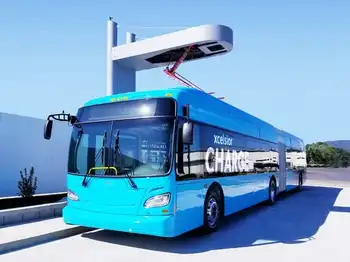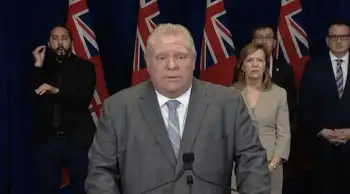B.C. biomass pellets a hit in Europe
By Globe and Mail
Protective Relay Training - Basic
Our customized live online or in‑person group training can be delivered to your staff at your location.

- Live Online
- 12 hours Instructor-led
- Group Training Available
Loaded into boxcars and transported by rail, cargo ship and, finally, canal barges, they'll travel more than 20,000 kilometres before they end up heating some kid's waffle in Belgium.
Using B.C.'s pine-beetle-killed wood to reduce the carbon output of coal-fired power plants on the other side of the planet sounds cool but economically implausible. Yet biomass is Prince George's fastest-growing commodity.
By the end of 2010, Pacific BioEnergy will double the capacity of its Prince George plant on the strength of a deal signed earlier this year with a leading energy company, GDF SUEZ. Throughout the 10-year pact, the European company expects to reduce its net CO2 emissions by more than 4 million tonnes by supplementing coal with B.C. wood pellets.
Much closer to home, Alberta is the largest provincial emitter of greenhouse gases in Canada, in part because of its reliance on coal-fired electricity generation. Energy that B.C. often buys to fill its own needs.
Alberta has about two dozen coal-fired plants that could tap into this renewable and carbon-neutral energy source. At last count, the electricity utilities made up 44 per cent of the province's total greenhouse gas emissions from heavy industry.
Yet Don Steele, chairman and CEO of Pacific BioEnergy, can't get his pellets on the short train ride across the Alberta border.
"That doesn't make a hell of a lot of sense," he said.
The private companies that run Alberta's electricity plants don't see an economic benefit. Coal is cheap, especially when there is only a token price tag on the pollution produced by burning it.
To Mr. Steele, policymakers across North America are still struggling to catch up with Europe in figuring out the formula that will encourage alternate, renewable energies that can supplement traditional fossil fuels.
He has condensed the issue into these simple, provocative words: "Do you believe pollution exists? Do you believe pollution is free? If you don't think pollution exists, you should just burn coal. If you think pollution should be freely dumped into the air, just burn coal."
Alberta Premier Ed Stelmach has produced a made-in-Alberta plan to fight global warming that seeks to deflect demands for a national climate-change agenda. When Canada's premiers met in Winnipeg earlier this month, he insisted that the cap-and-trade market that B.C., Ontario and some other provinces favour is a scheme to snitch Alberta's resource wealth.
Mr. Stelmach's Alberta has little appetite for a regulatory regime that would give private utility companies a reason to replace some of their coal with a cleaner, B.C.-grown alternative.
While B.C. has led the country in putting a price on pollution with its carbon tax, Alberta's climate-change agenda aims to keep cash and carbon credits circulating within its borders. An electricity utility in the province can choose to pay $15 per tonne for emissions that exceed its targets or buy carbon credits from other Alberta companies. Not surprisingly, their GHG emissions under this plan are forecast to grow for the next decade.
Eventually, the market for green energy in North America will catch up with that of Europe, Mr. Steele believes, and his products will one day travel to Chicago, L.A., and yes, even Edmonton.
B.C. Forests Minister Pat Bell, who hails from Prince George, would love to see pellets made from B.C. wood waste loaded up on rail cars that are currently deadheading back to Alberta. But the clash between the two provinces over climate change has effectively put a moat around Alberta that is keeping B.C. biomass out.
Even though Alberta and B.C. have been pursing a trade and labour mobility pact, Mr. Bell finds Mr. Stelmach's position hypocritical.
"Alberta relies heavily on international trade for their primary commodity products, their beef, grains, energy, coal. You can't set up boundaries just when it is convenient to do so you are either a free trader or you are not a free trader."
Prince George mayor Dan Rogers was in Victoria pushing a rural clean energy agenda. "There is great irony here that we are creating green energy here and then shipping these pellets around the world."
But even B.C. hasn't got the mix right, the mayor is quick to point out. Just six per cent of the wood pellets manufactured in B.C. last year were consumed domestically. "Even in our own backyard we are not seizing the full opportunities by shifting to what is, in essence, a renewable energy source."











